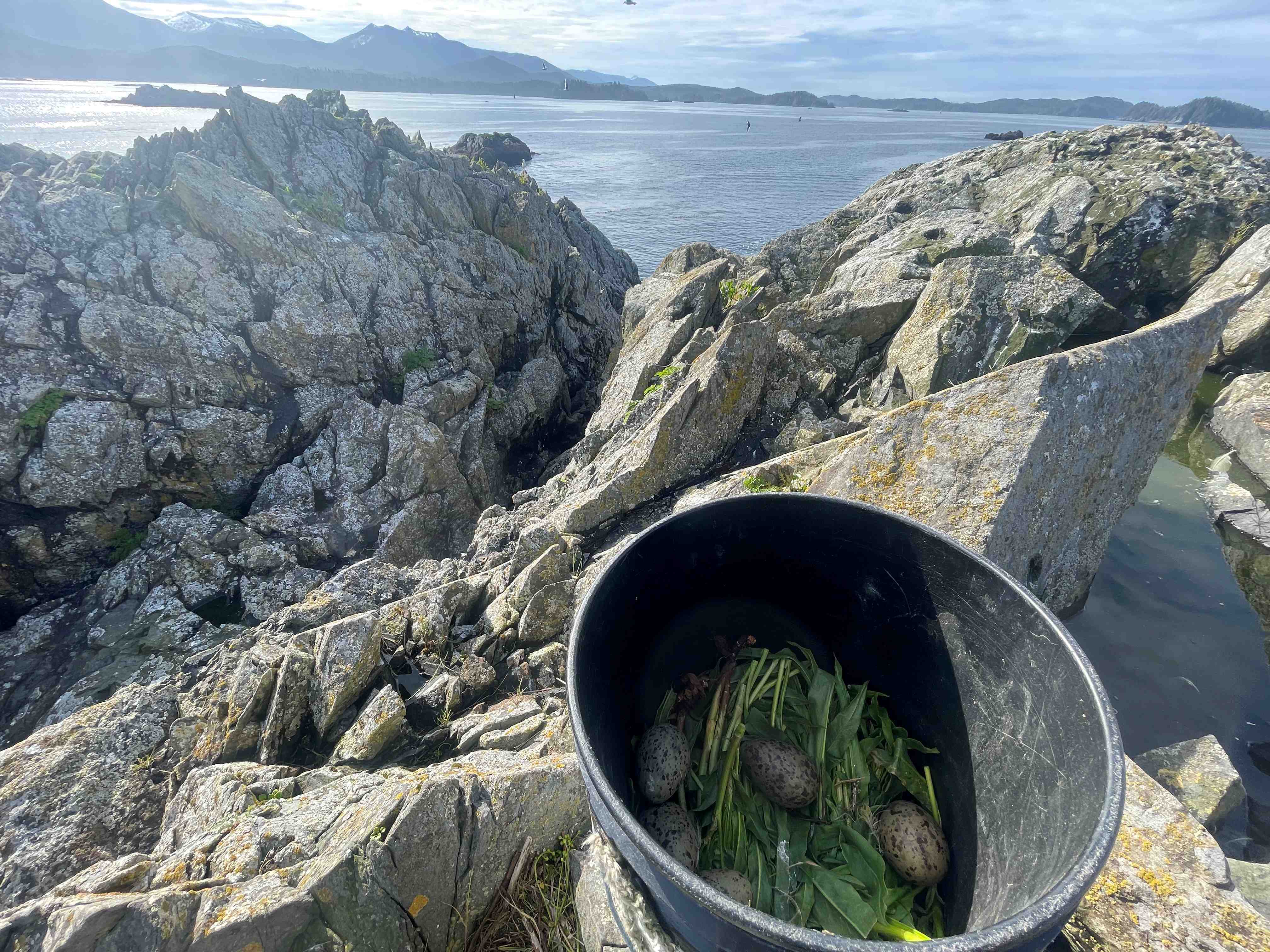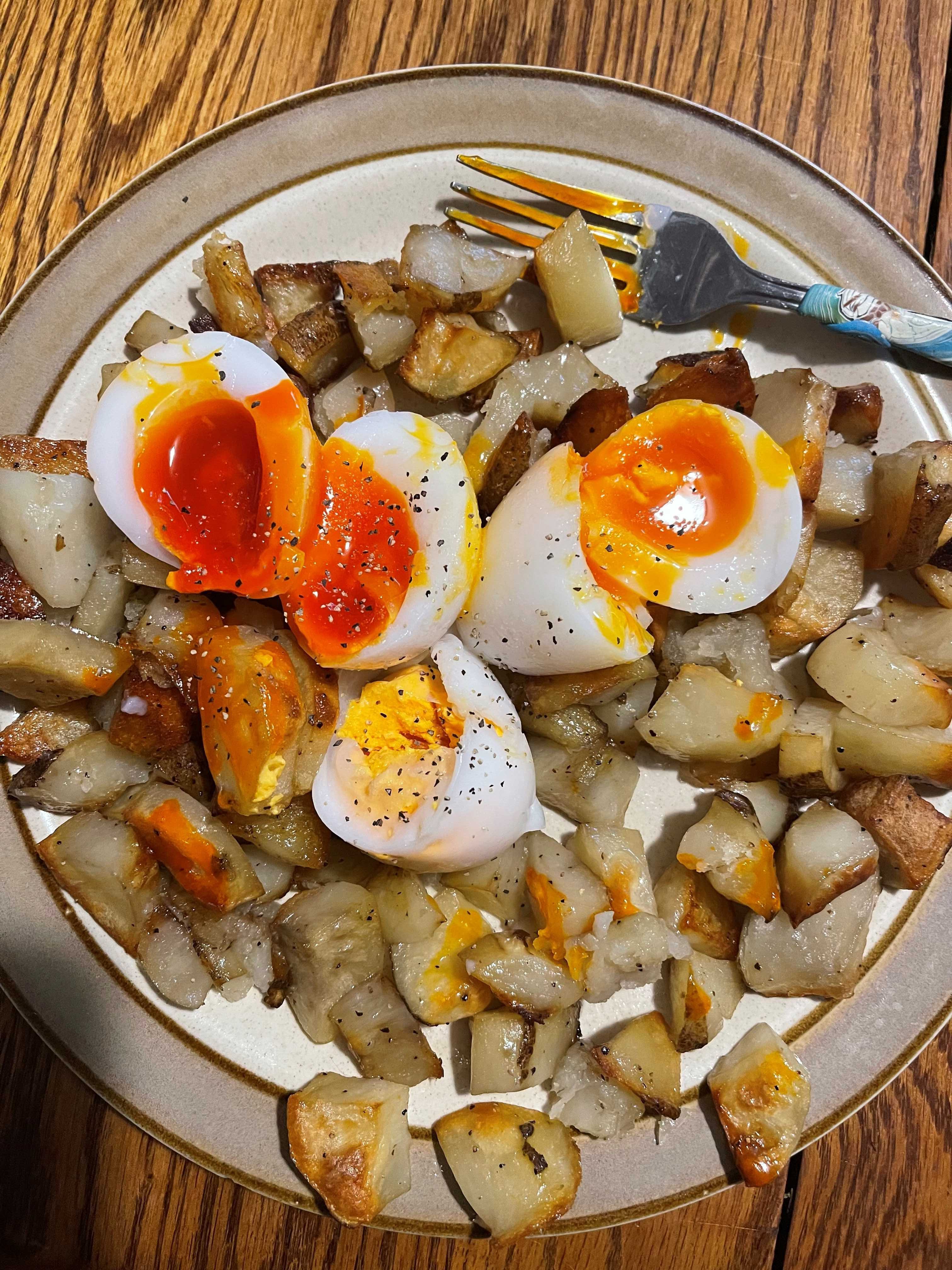
Spatial relationship with place boundless. Ilegvak

Spatial relationship with place boundless. Ilegvak
By Ilegvak
Winter 2024-25, FORUM Magazine
THE SMALL BOAT GENTLY SWAYS up and down in rhythm with the swell as we approach steep rocks jetting out of the ocean. Streaks of long white bird guano splatter down the tops of the arching backs of boulders as if someone kicked cans of paint down the chiseled rock face. The dark outline of a seal head bobs in the foamy sea waves crashing against a sloping barnacle incrusted point it wants to haul out on. It quietly disappears as the wind and current slide us sideways. We drift behind the island of stone.
Puffed-up seagulls calmly stand on thin legs in the cool morning air, their grey and white feathers contrasting against the rocky edges. They are scattered among patches of moss and vibrant, short green foliage that wobbles in the wind. They are the only plants growing on the island besides seaweed, the algae pools, and the lichen-speckled rocks. It’s the third summer I have harvested seagull eggs, a once-a-year event that quickly became an obsession. Harvesting gull eggs is like the ultimate Easter egg hunt for adults. It teems with anticipation where the rich sweetness of ancestral food and cultural tradition are the hidden treats waiting to be found.
In the morning of early June, just outside of Sheet'ká, gulls soar above me as I search for their eggs. Ilegvak.
The boat's bow I’m standing on rushes towards the jagged outcrop. We surf slightly on the incoming swell. I toss a few buckets to shore—the plastic thuds hollowly as it bends and bounces across the rough stone. Stretching out my left leg, I lurch forward as the wave retreats. My right rubber boot scrambles above where the tide touched a moment ago. Last year, I almost ditched going to a friend’s wedding so I could hunt for eggs instead. But the weather in Sheet'ká was colder in early June that year and the seagulls didn’t start to lay until a week later anyway. I cling to and press against the precipitous, giving the captain a thumbs up as I calculate my next move. The tone of the outboard motor changes as he reverses out of there.
It’s just me, Creator, this island, seagulls, and I scramble up the incline under a vast open sky, hopefully towards their eggs. Sunlight whisks past fluffy clouds as the gulls take flight, no longer looking like buoys or awkward lawn ornaments. Their bodies quickly transform into something aerodynamic and eloquent. Shilotes of long, slender, tapering wings rapidly dart above me with breathtaking effortlessness and grace. As I move, the reluctant flock that didn't take flight gets pushed to my right, staying about a stone's throw away. I scan for signs of sick or dead birds and pass a small fish's limp, shiny, sleek body—someone’s dropped breakfast amongst the commotion.
It’s just me, Creator, this island, seagulls, and I scramble up the incline under a vast open sky, hopefully towards their eggs.
A recent bird flu outbreak was found in a dead polar bear and fox in Alaska, besides backyard birds, and killing mass amounts of sea lions and seals across the globe. It jumped to dairy cows and then to human laborers in the US. Faced with the possibility of getting sick, and I wouldn’t want to harvest eggs during a mass die-off anyways. I seriously questioned whether to harvest this year. Still, the pull to hold the weight of the oval egg in my hand as the speckle blotches float in suspension across the shell from the narrowing tip containing the simple mysteries of the universe camouflaged like pebbles, sand, and stardust. Risks aside, I couldn’t resist gathering them for the nutrient-dense, soft, thick, creamy egg white and the electric rustic orange of a setting sun yolk, containing the flavors of joy and laughter of my ancestors. After breaking off some of the leafy greenery, I line the bottom and sides of the bucket.

For dinner, vibrant orange soft-boiled seagull egg yolks lay in wait on salty potatoes. Ilegvak
It swings from its handle as my long strides carry me over rocky crevices. I watch where I step carefully, glancing around for their circular nests hidden on the ground. The smooth, slight divot packed away in the dirt with a pristine crown of sod, blades of grass, and wildflowers stand out more than the slate green, gray, or brown eggs built to blend into the coastline. It is easier to spot the large shape of something among rocks that one would find in art galleries and the offices of engineers than an egg birthed on Earth. The fast-moving birds soar above me. They glide and change direction as they fill the air with the cawing of a lower guttural fluttering laughter more than their high-pitched, piercing shriek. It is surprisingly serene as I bend down with exhilaration and gently grasp an egg. I say, “Quyana, gunalchéesh,” and place it in my grass-lined bucket.
The gulls stay peaceful, which seems contradictory, especially to someone who has been dive-bombed by birds before just walking down the street or pulling into a cove. I wonder if there were chicks in the nests, would it be different? I continue on my egg hunt, taking from nests that have one or two as they are not developed yet and they will lay more. But some people like the crunch. My cousin likes the crunch, and my Elder Ed’s grandfather liked the crunch. Although I’m not there yet, when I look at a nest packed with three or four eggs, I think, “Maybe I’d like the crunch too.” ■
Ilegvak is a Yup’ik artist and culture bearer who writes about art, politics, Native rights, traditional food systems, and environmental justice. His work is increasingly focused on climate change and its disproportionate effects on Indigenous peoples and how Native cultural knowledge systems have solutions to this global crisis. He received a Luce Indigenous Knowledge Fellowship, a United States Artists Fellowship, a Forge Project Fellowship, and an NDN Collective Radical Imagination Grant. Ilegvak is a 2024 Andy Warhol Foundation Arts Writers Grant recipient and a FORUM Writing Fellow.
FORUM is a publication of the Alaska Humanities Forum. FORUM aims to increase public understanding of and participation in the humanities. The views expressed by contributors are not necessarily those of the editorial staff or the Alaska Humanities Forum.
The Alaska Humanities Forum is a non-profit, non-partisan organization that designs and facilitates experiences to bridge distance and difference – programming that shares and preserves the stories of people and places across our vast state, and explores what it means to be Alaskan.
November 13, 2025 • MoHagani Magnetek & Polly Carr
November 12, 2025 • Becky Strub
November 10, 2025 • Jim LaBelle, Sr. & Amanda Dale